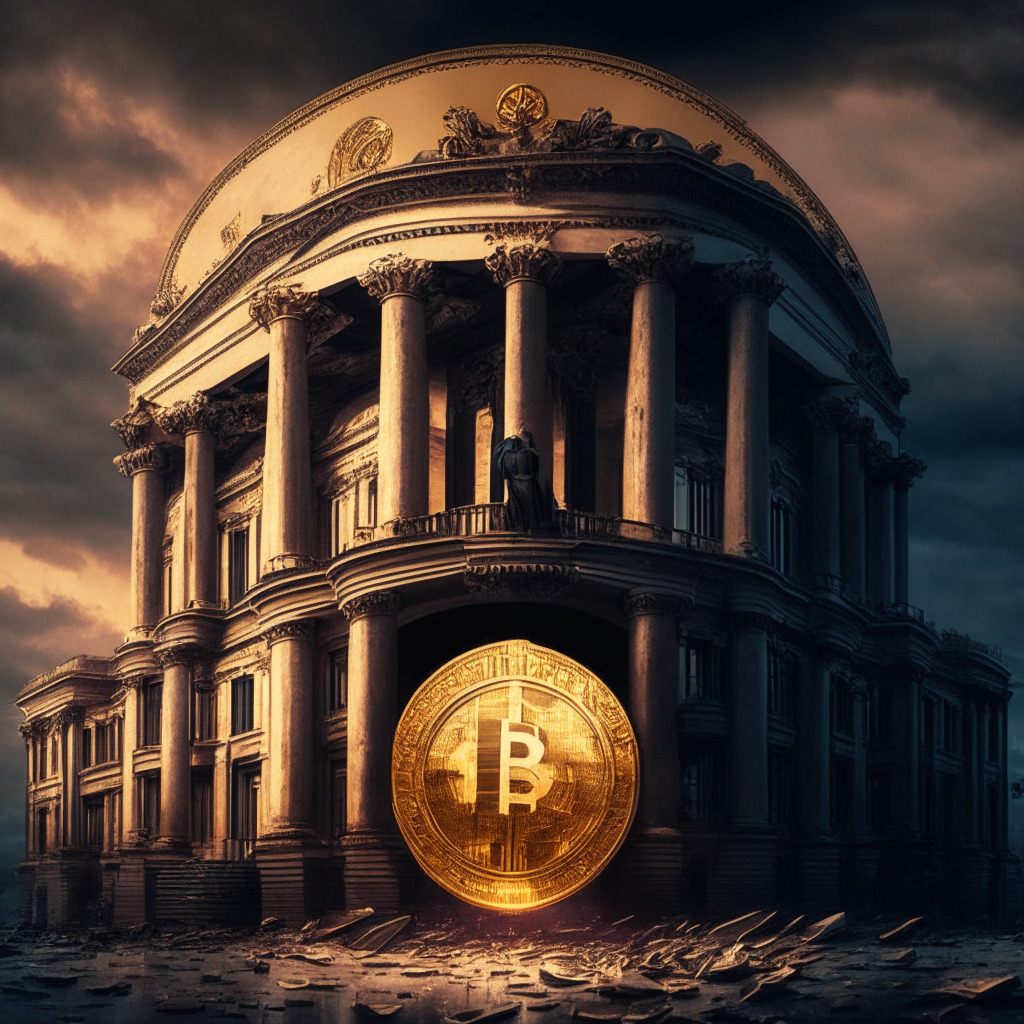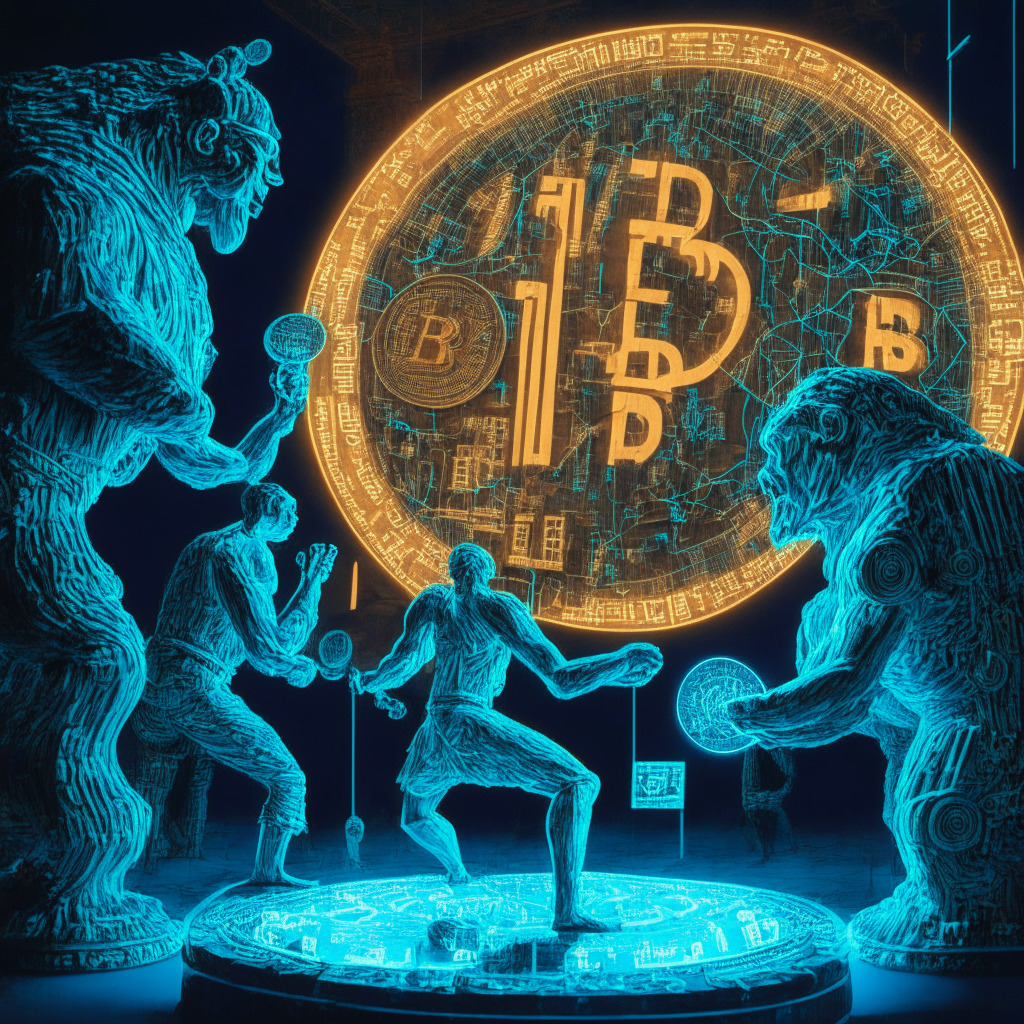“Binance, the leading crypto exchange, is considering an absolute exit from Russia amid increasing Western sanctions. This comes after allegations of enabling transactions related to sanctioned Russian banks, escalating global legal issues, and potential indictments for possible infringement of anti-money laundering laws.”
Search Results for: binance
Sanction Enforced: Binance Removes Banco de Venezuela from P2P Services
“In a move to enforce international financial sanctions, Binance, the world’s largest crypto exchange, has eliminated a payment method attached to Banco de Venezuela from its P2P trading service. This action reflects the limited room for maneuver that global crypto exchanges have amidst international sanctions and raises questions about the extent to which the promises of cryptocurrencies hold true in a regulated market.”
Navigating the Choppy Waters: Binance’s Launch of T+3 Daily BNB Options & Its Market Implications
Binance Options is set to introduce “T+3” daily call and put contracts related to BNB, a cryptocurrency intrinsically linked with the exchange itself. Essentially, these options can be traded two days prior to expiry, initially offering a lifetime of three trading days from their introduction, promoting increased flexibility in cryptocurrency markets. This move also reflects Binance’s positive outlook towards the future of cryptocurrency markets.
Navigating Regulatory Hurdles: Binance Continues Belgian Operations via Poland Amid EU Changes
Binance will continue serving Belgian users despite previous AML and CFT violations by transferring operations to its Polish entity, Binance Poland. Belgian users will now adhere to Poland’s KYC regulations. This comes amid upcoming EU crypto regulations in 2024.
Binance Regulations and Its Impact on Russian Cryptocurrency Traders: An Analytical Perspective
“Binance introduces new P2P trading restrictions specifically targeting its Russian clients, limiting them to only using the Russian ruble. While narrowing choices, this strengthens local control over RUB in the Russian crypto sphere. However, Russians abroad face difficulties as their usage of other currencies has been banned on the platform.”
Binance and the Minefield of Sanctions: Navigating the Russian Crypto Landscape
“Binance is under scrutiny for potential ties with five sanctioned Russian banks, raising questions about compliance and potential sanctions violations. Critics claim Binance facilitated ruble trades and peer-to-peer transactions with these banks. However, Binance denies these allegations, stressing adherence to international sanctions rules.”
Visa and Mastercard Sever Ties with Binance: A Shake-up or Just a Ripple in the Crypto Market?
“Payment giants Visa and Mastercard have distanced themselves from Binance amid ongoing regulatory challenges for the leading crypto exchange. Despite this, industry experts predict modest impact on Binance’s market share. The situation illustrates how institutional caution could affect the cryptocurrency market’s future.”
Binance’s Russian Rumble: Gearing Crypto Towards Regulatory Compliance or Decoupling From Traditional Bank Partners?
“Binance terminated its relations with five Russian banks amidst a system upgrade aimed at strengthening compliance with regulatory norms. This move brings into question the reliability of digital currencies as a stable transfer medium, highlighting the often complicated relationship between cryptocurrencies, regulatory compliance and traditional banking systems.”
Binance Strategy for Low-Liquidity Projects: A Safety Measure or a Possible Dilemma?
“Binance, a leading crypto exchange, is considering partnering with low-liquidity crypto projects to enhance market liquidity and curb potential price manipulation. However, its proposal to take a stake from these projects’ circulating tokens could introduce unforeseen issues, including potential conflicts of interest and market distortion.”
Mastercard Ends Crypto Card Partnership with Binance: An Insight into Evolving Crypto Regulations
Mastercard has announced the termination of its cryptocurrency card partnership with Binance amid increased regulatory scrutiny of the cryptocurrency exchange. This decision, however, does not affect Mastercard’s other crypto card partnerships and highlights the evolving landscape of crypto regulations.
Mastercard and Binance Separation: A Shift in Crypto-Regulation Landscape or a Business Misstep?
“The recent separation between Mastercard and cryptocurrency broker Binance raises questions regarding Binance’s regulatory issues. Despite ending the partnership, Mastercard remains interested in blockchain technology. But, caution has been advised for Binance users in response to these unfolding events.”
Binance Shakes Up Crypto Market: From Zero-Fee Bitcoin Trading to VIP Taker Fees
Binance’s recent decision to modify their zero-fee Bitcoin trading program has stirred the crypto community. Commencing from September 7, traders will now face a standard taker fee, potentially leading to a drop in trading volumes. However, Binance users can now benefit from zero maker and taker fees trading FDUSD Bitcoin, despite FDUSD’s current lower trading volume.
Binance Controversy: Balancing Digital Freedom and International Sanctions Compliance
Binance, a popular cryptocurrency exchange, circumvented sanctions on two Russian banks by renaming them for local payment options. Critics argue this move may increase regulatory control over crypto markets. Meanwhile, supporters believe it demonstrates crypto’s independence from traditional financial systems and governmental interference. Binance’s actions have raised questions about crypto exchanges’ responsibility to respect international regulations.
Dramatic Plunge in Ether Futures on Binance: Unsettling Calm or the Start of a Storm?
The U.S. dollar value in active ether perpetual futures contracts on Binance has dropped to $1.41 billion, the lowest in over a year. Binance has seen its ether futures notional value dip 35% within a week, reflecting a system-wide leverage washout. This suggests a lower probability of future volatility instigated by liquidations.
Binance Discontinues Crypto-Backed Debit Card in Latin America & Middle East: Strategy or Setback?
“Binance discontinues its crypto-backed debit card in Latin America and the Middle East, affecting less than 1% of users. This follows the earlier deactivation of Binance Connect, pointing towards a potential strategic shift. However, the lack of transparency arouses uncertainty, underscoring the need for clarity and trust in the crypto world.”
Navigating Binance.US’s Bold Transition from USD to USDT Amidst Regulatory Challenges
“Binance.US, amid banking challenges, partnered with MoonPay, replacing USD with USDT, turning the exchange into a cryptocurrency-based platform. While facing regulatory scrutiny, it suspended fiat withdrawals and transactions, indicating a retreat from traditional financial systems. The switch raises questions about future banking.”
Navigating Stormy Waters: Binance, Sanctions and the Quest for Cryptocurrency Regulation
“Binance, a leading cryptocurrency exchange, faces allegations of facilitating transfers to sanctioned Russian lenders. The platform allegedly allowed P2P transactions via institutions like Rosbank and Tinkoff Bank without setting trading limits. Additionally, Binance is tangled in legal issues with regulators like the CFTC and SEC, intensifying concerns around regulatory compliance in crypto transactions.”
Binance’s SEPA Confusion: Miscommunication, Impact and Future Prospects in Europe
“Binance recently miscommunicated about the availability of euro transactions causing significant confusion. Amid troubled relations with regulatory bodies across Europe, such errors could impact Binance’s image and potential partnerships. CEO, Changpeng Zhao, urges users to ignore panic-inducing fears while awaiting transparent answers about Binance’s operations.”
BNB Value Dips Amid Binance Controversies: Ripple Effects & Possible Solutions
“The BNB crypto token has experienced a decrease in value due to Binance’s questionable activities and increasing legal scrutiny, affecting its $32 billion market position. Binance’s involvement with offshore funds movement amid international sanctions has heavily impacted BNB’s value and broader digital currency markets.”
Evaluating Binance’s SEPA Transfer Disruptions: Uncharted Territory or a Hitch in Paving the Crypto Future?
Binance temporarily suspended EUR withdrawals and deposits via SEPA due to issues with its euro banking partner. The crypto exchange has plans to transition to an alternate service provider and users are urged to stay informed and prepared.
Binance’s BNB Token Faces Plunge: Can Presale Strategy Cushion The Blow?
“BNB, the digital token of Binance Smart Chain, slumped to its lowest since July 2022, due to suspected loan liquidations on the Venus protocol. Amid controversies and ongoing legal proceedings against Binance, experts advise crypto enthusiasts to diversify investments in the volatile market.”
Binance’s Juggling Act: Navigating Regulatory Challenges and Growing Pains in Crypto Markets
“Binance, a prominent cryptocurrency exchange, is facing regulatory challenges and payment processor issues in Europe, limiting withdrawals. However, this situation underscores the necessary growth and maturation of global digital asset markets, and highlights the need for increased regulation and security in the volatile crypto space.”
Coinbase Surge vs Binance Supremacy: Who Will Rule the Crypto-Exchange Realm?
Coinbase International, a subsidiary of Coinbase, has seen a surge in trading activity, nearing $300 million per day. This is in line with a strategic initiative for global expansion, despite complex US regulations and legal confrontations with the SEC. Additionally, Coinbase has onboarded 50 institutional investors trading $5.5 billion in seven weeks, raising the question of whether they could surpass current market giant, Binance.
Regulatory Compliance and Crypto Exchange: Binance, Checkout.com, and the Premature Contract Termination
“Binance, the world’s largest cryptocurrency exchange, faced contract termination from payment processing giant Checkout.com due to regulatory concerns. Checkout had facilitated billions in crypto transactions for Binance. This termination underscores the impact of regulatory scrutiny on even the most lucrative partnerships within the crypto industry.”
Cryptocurrency Rollercoaster: Musk’s Move, Binance Saga, and Unfolding Challenges in the Cryptoverse
Elon Musk’s decision to remove the blocking feature has created anxiety within the crypto community, due to fear of increased scam accounts and spam. Meanwhile, the Binance saga, involving a legal dispute with Checkout.com, and subsequent closure of Binance Connect, hints at the complexities and challenges within the cryptoverse.
Breaking Down the Binance-Checkout.com Fallout: Regulatory Complexities in the Blockchain World
“Binance considers suing Checkout.com after their abrupt partnership termination, affecting Binance’s operations and the blockchain world. The case shows challenges in legislating innovative tech, yet accentuates blockchain’s potential, advancing towards a decentralized, secure financial system.”
Crypto Shockwave: Unprecedented $55m Ether Liquidation Shakes Binance
An anonymous trader lost $55 million on an Ether trade against Binance USD as the crypto markets experienced a sudden drop. This trade, consisting of 38,986.528 Ether, was liquidated at the $1,434 price level, making up nearly 30% of all liquidated futures on Binance. The incident underscores the inherent risks involved in the volatile field of cryptocurrency.
Binance Connect’s Shutdown: Reflection on Regulatory Challenges in Crypto’s Growth Journey
“Binance Connect, a regulated crypto trading platform, is shutting down due to their provider discontinuing card payment service. Despite significant adaptation strategies and growth to a broad blockchain ecosystem, Binance faces ongoing regulatory complexities and issues, indicating an intricate, evolving landscape for crypto businesses.”
Binance Connect Shutdown: Strategic Decision or Lost Potential for a Crypto-Friendly Future?
“Binance, a leading global cryptocurrency exchange, is winding down its buy-and-sell feature, Binance Connect. The decision, aimed at refocusing efforts on core products and strategies, marks the end of the versatile platform supporting 50 cryptocurrencies and traditional payment methods. While seen as a step back, this could be a strategy for sustainable growth.”
Binance Connect Shutdown: A Major Blow or Fresh Opportunities on the Horizon?
Binance Connect’s anticipated shutdown on August 16 has left the crypto community questioning the reasons behind this decision. According to Binance, the shutdown is a response to the evolving market landscape and user needs. However, this move raises concerns for the community and creates potential opportunities for competitors, reflecting the dynamic nature of the crypto world.
Regulatory Map: Binance US and SEC’s Discovery Clash Unraveled
“Binance US, the division of the popular digital asset exchange, has appealed against the SEC’s extensive discovery process after being accused of improper registration and mixing user assets. Claiming that the SEC has overstepped the agreement boundaries, Binance US is seeking to limit further intrusions into the company’s operations.”
Binance vs SEC: A Power Struggle Shaping the Future of Crypto Regulation
“Binance is contesting SEC’s extensive communication demands and deposition requirements for senior staff, arguing the regulator’s actions are overreaching. This case’s resolution could impact future regulation of cryptocurrencies and blockchain technology, highlighting the need for clear boundaries and collaborative understanding between regulators and crypto organizations.”































